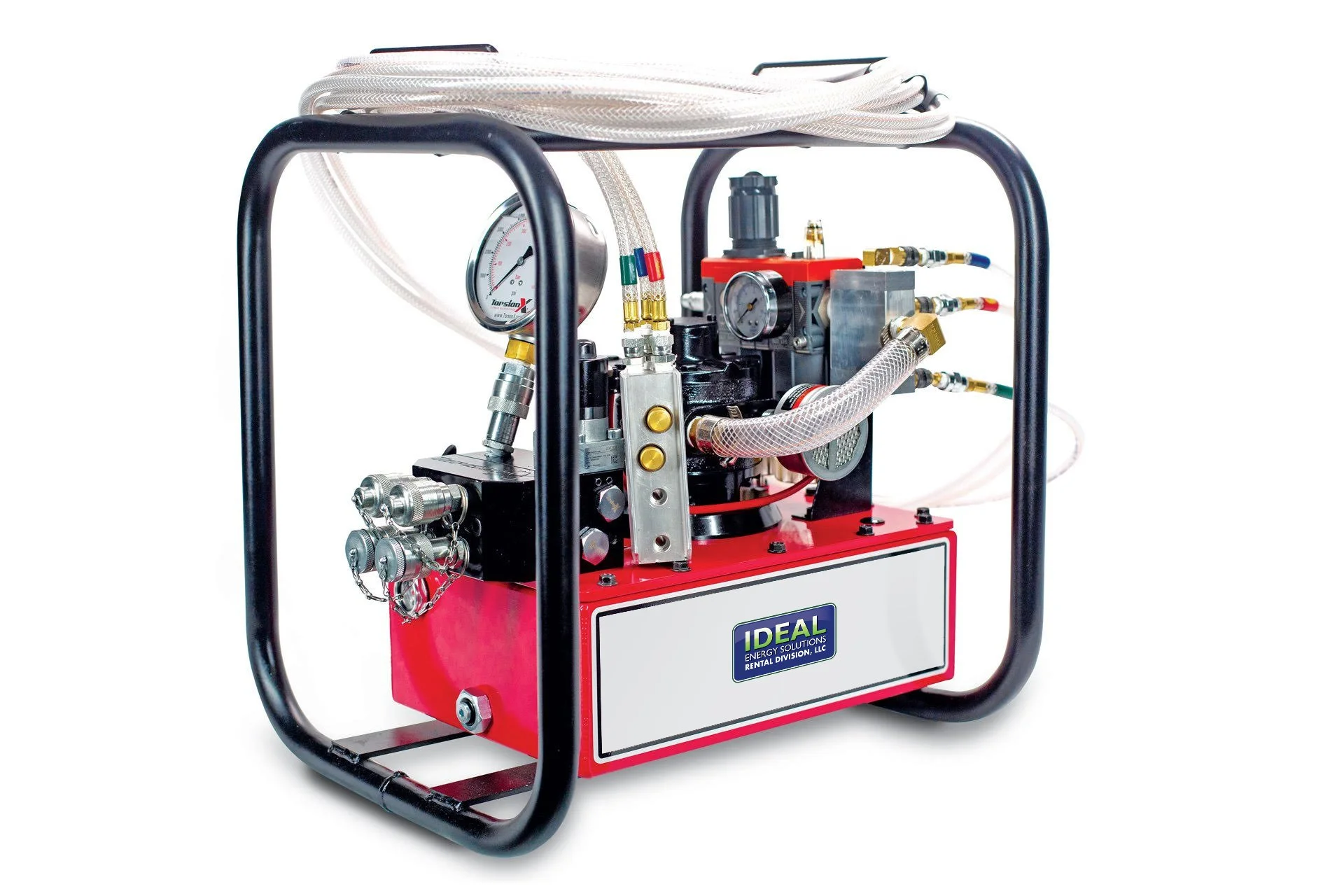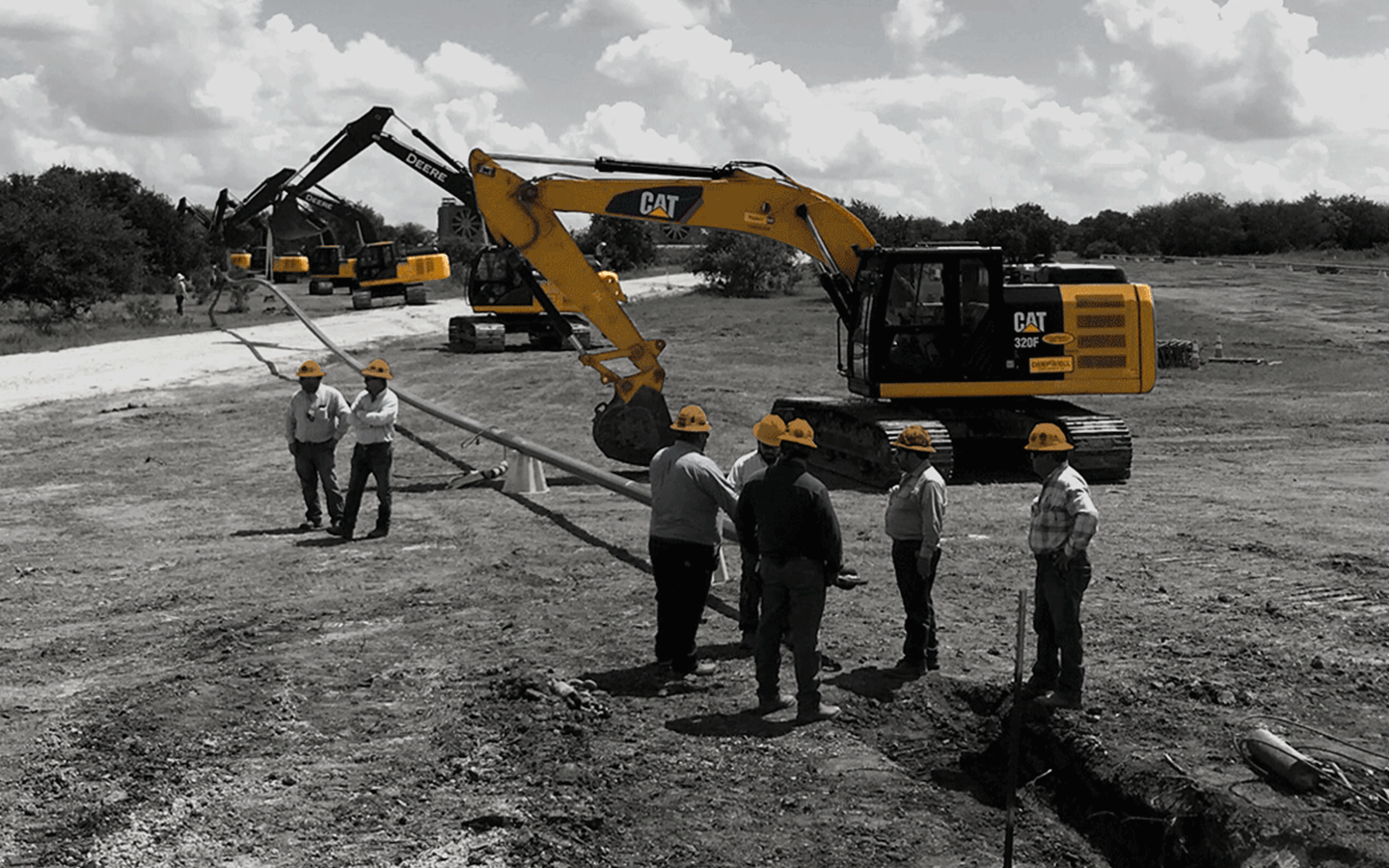Why Superior Oilfield Rentals is transforming equipment management
A Comprehensive Overview to the Numerous Kinds Of Oil Field Equipment and Pipeline Equipment Available
The oil and gas sector counts greatly on specific equipment for efficient extraction and transport. Numerous sorts of equipment, from piercing rigs to tank, play vital duties in this complex process. Each piece of devices serves distinctive functions that add to overall operational success. Comprehending these elements is necessary for anybody included in the market. As the market progresses, so too do the technologies that support it. What improvements are on the horizon?

Drilling Rigs: The Foundation of Oil Exploration
Drilling rigs act as the important equipment in the domain name of oil exploration, enabling business to access hydrocarbon reserves hidden deep below the Earth's surface area. These rigs come in different kinds, including land rigs, offshore rigs, and mobile units, each designed to run in details settings. Outfitted with innovative technology, drilling rigs can pass through geological developments with precision, making sure reliable resource removal. The architectural stability and functional capacities of these rigs are important, as they need to withstand extreme problems and considerable stress. The option of a drilling rig influences the general project price and timeline, making it an important consideration for oil firms seeking to optimize their exploration efforts and maximize performance in their procedures.
Pumps: Necessary for Liquid Activity
In the oil removal procedure, the duty of pumps is significant, promoting the movement of fluids throughout numerous phases of manufacturing. Pumps are vital for transporting petroleum, water, and other fluids from below ground tanks to the surface area and then via pipes to refineries. They come in various kinds, consisting of centrifugal, positive displacement, and completely submersible pumps, each offering specific purposes based upon the fluid characteristics and functional demands. Centrifugal pumps are frequently used for their effectiveness in high-flow applications, while favorable variation pumps excel in taking care of thick fluids. The choice of pump influences general effectiveness, functional safety and security, and maintenance costs. Appropriate selection and upkeep of pumps are crucial for optimizing manufacturing and reducing downtime in oil field procedures.
Shutoffs: Controlling Flow and Pressure

Valves play an essential duty in taking care of the flow and pressure of fluids within oil areas and pipelines. Various kinds of shutoffs serve distinct applications, each made to meet certain features basic for reliable operation - Superior Oilfield Rentals oilfield. Recognizing the features and usages of these shutoffs is necessary for optimizing system performance and safety and security
Sorts of Valves
Crucial elements in oil area procedures, shutoffs play an essential duty in regulating the flow and stress of fluids within pipes and tools. Different kinds of valves are utilized to satisfy the diverse demands of oil and gas production. Typical types consist of gateway valves, which give a straight-line flow and marginal pressure decline; globe valves, known for their strangling capacities; and round shutoffs, acknowledged for their fast on/off control. Additionally, check shutoffs stop heartburn, while butterfly valves offer a light-weight service for controling flow. Each valve kind is developed with details products and arrangements to endure the rough problems typically located in oil areas, guaranteeing dependability and performance in procedures. Comprehending these types is crucial for reliable system management.
Valve Applications and Functions
While numerous types of valves serve unique purposes, their main applications focus on regulating flow and pressure within oil and gas systems. Valves such as entrance, globe, and ball valves manage liquid movement, making certain peak efficiency and security. Gate shutoffs are typically used for on/off control, providing minimal flow resistance. Globe shutoffs, on the other hand, offer specific circulation policy, making them ideal for strangling applications. Round valves are preferred for their fast operation and tight securing capacities. Furthermore, pressure relief valves are important for protecting against system overpressure, guarding equipment stability. Generally, the resource suitable option and application of shutoffs enhance operational performance, guaranteeing the reliable transport of oil and gas via pipes and processing facilities.
Compressors: Enhancing Gas Transport
Compressors play a crucial role in the reliable transportation of gas, ensuring that it relocates smoothly through pipes over fars away. These tools boost the stress of natural gas, permitting it to get rid of rubbing and altitude changes within the pipeline system. Additionally, compressors facilitate the balancing of supply and demand, fitting fluctuations in usage and manufacturing rates. Various sorts of compressors are employed in the market, consisting of centrifugal, reciprocating, and rotating screw compressors, each offering distinctive benefits based upon the operational requirements. Regular maintenance of these compressors is vital to make the most of effectiveness and minimize downtime, ultimately contributing to a trusted gas transportation network. Their important feature underscores the value of compressors in the overall oil and gas infrastructure.
Storage Tanks: Safe and Effective Liquid Monitoring
Effective transportation of natural gas counts on numerous supporting systems, among which is the appropriate management of tank. These tanks play a necessary function in safely containing fluids, guaranteeing that functional performance is kept while decreasing ecological risks. Built from durable products, they are made to withstand high pressures and corrosive elements. Appropriately sized and strategically situated, tank assist in the smooth flow of gas and other liquids, preventing traffic jams in supply chains. Normal upkeep and surveillance are great site imperative to discover leaks or architectural concerns, advertising safety and conformity with regulative standards. Ultimately, the reliable monitoring of backhoe attachments for tractors storage space containers is crucial for the total stability and dependability of the oil and gas market's liquid handling systems.
Pipeline Equipments: Facilities for Transportation
Pipeline systems serve as the backbone of the oil and gas market, facilitating the effective transport of hydrocarbons over vast ranges. These systems consist of different components, including pipes, valves, pumps, and compressors, all diligently designed to ensure smooth flow. The products utilized in pipeline building, commonly steel or high-density polyethylene, are chosen for sturdiness and resistance to rust. Pipeline networks can span across land and water, attaching production websites to refineries and warehouse. Additionally, progressed technology enables real-time tracking of circulation rates and stress levels, boosting functional performance. The calculated placement of these pipelines lessens ecological effect while optimizing source availability, consequently playing an important function in conference power needs around the world.
Security Equipment: Making Sure Employee and Environmental Security
The operation of pipeline systems, while necessary for energy transportation, likewise offers substantial safety difficulties for employees and the environment. Safety and security devices plays a significant function in mitigating these dangers. Individual safety tools (PPE) such as helmets, handwear covers, and non-slip footwear safeguards employees from physical threats. Additionally, gas discovery systems keep track of for leakages, making sure that damaging compounds do not position a threat to employees or the bordering community. Emergency closure systems are essential for quickly halting procedures throughout a dilemma, preventing potential disasters. Spill containment materials, consisting of absorbents and barriers, are essential for reducing environmental influence. In general, buying comprehensive security equipment is essential for keeping operational honesty and securing both workers and the setting in the oil and gas sector.

Frequently Asked Concerns
How Do I Pick the Right Oil Field Equipment for My Job?
Choosing the right oil area equipment involves examining task requirements, budget constraints, and operational requirements. Think about aspects such as tools reliability, compatibility with existing systems, and the distributor's online reputation to assure peak efficiency and safety and security.
What Are the Maintenance Needs for Oil Field Equipment?
Maintenance needs for oil area equipment include regular assessments, lubrication, and prompt repair services. Operators should also abide by manufacturer guidelines, screen efficiency metrics, and assurance conformity with safety guidelines to improve longevity and efficiency.

How Can I Guarantee Conformity With Environmental Rules?
To ensure compliance with environmental guidelines, firms need to perform routine audits, carry out ideal methods, invest in training, preserve appropriate documentation, and remain upgraded on regulation (Superior Oilfield Rentals oilfield). Cooperation with ecological companies can likewise boost adherence to laws
What Is the Ordinary Life-span of Pipeline Equipment?
The average lifespan of pipeline tools commonly ranges from 20 to 50 years, relying on aspects such as material top quality, ecological conditions, and maintenance methods. Routine examinations can significantly affect long life and operational efficiency.
Just how Do I Safely Deliver Oil Field Equipment to Remote Locations?
Carrying oil area devices to remote places requires cautious preparation, including path analysis, securing authorizations, utilizing proper automobiles, and ensuring safety protocols are adhered to. Proper training and interaction among staffs are crucial for effective transport.